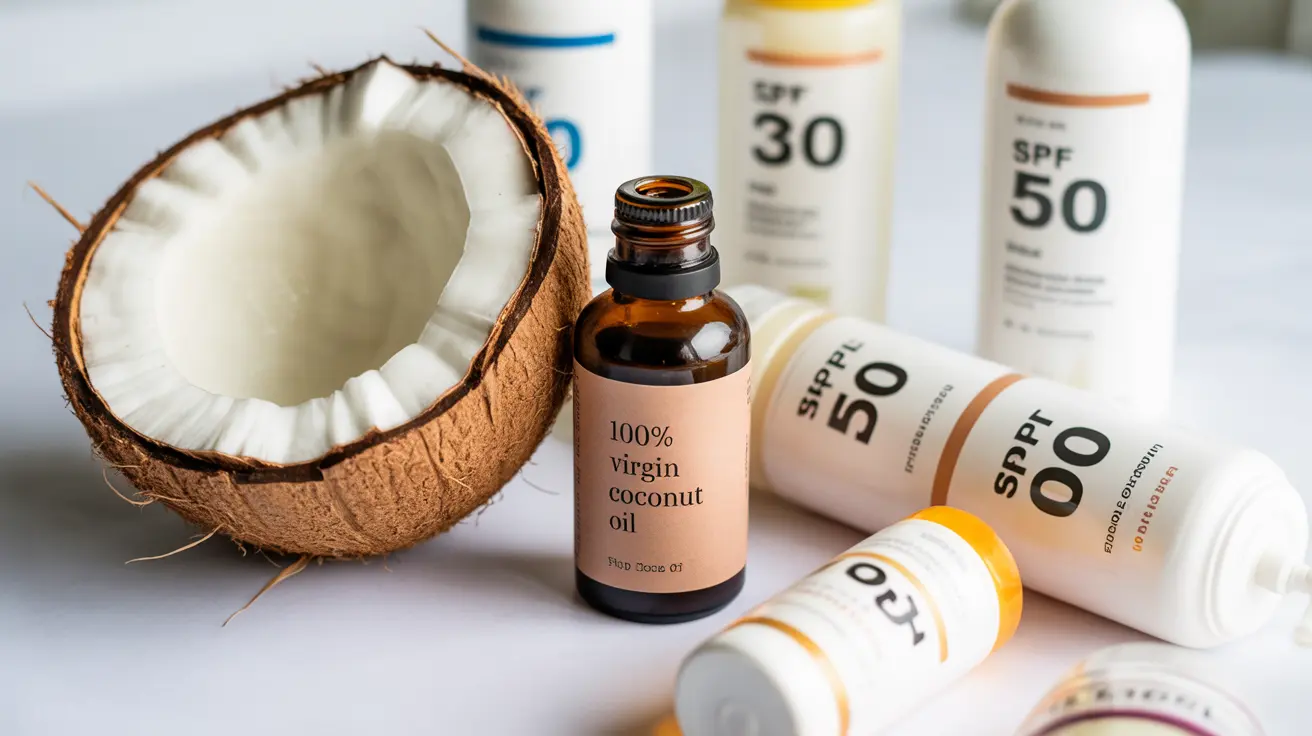Many people are turning to natural alternatives for skin protection, and coconut oil has gained attention as a potential sunscreen substitute. However, understanding the science behind sun protection and the limitations of natural oils is crucial for making informed decisions about your skin's health.
This comprehensive guide examines the facts about using coconut oil as sunscreen, its actual protective capabilities, and what you need to know to keep your skin safe from harmful UV radiation.
Understanding SPF and Coconut Oil's Sun Protection Properties
Coconut oil does contain some natural sun-protective compounds, primarily in the form of antioxidants and fatty acids. However, its SPF (Sun Protection Factor) rating is significantly lower than what dermatologists recommend for adequate sun protection.
Research indicates that coconut oil has an SPF of around 4-7, which blocks only about 20% of UV radiation. In contrast, dermatologists recommend using broad-spectrum sunscreen with an SPF of at least 30, which blocks 97% of UV rays.
The Risks of Using Coconut Oil Instead of Sunscreen
Relying solely on coconut oil for sun protection poses several significant risks:
- Insufficient UV protection
- Increased risk of sunburn
- Higher possibility of skin damage
- Greater likelihood of premature aging
- Elevated risk of skin cancer
Unlike FDA-approved sunscreens, coconut oil doesn't provide broad-spectrum protection against both UVA and UVB rays, leaving your skin vulnerable to various forms of damage.
Benefits and Safe Uses of Coconut Oil in Sun Care
While coconut oil shouldn't replace conventional sunscreen, it can still play a beneficial role in your skincare routine:
After-Sun Care
Coconut oil's moisturizing properties can help soothe and hydrate sun-exposed skin when used after sun exposure. Its anti-inflammatory properties may help reduce redness and irritation.
Moisturizer Base
You can safely use coconut oil as a moisturizer under your regular sunscreen, allowing you to benefit from its nurturing properties while maintaining proper sun protection.
Best Practices for Sun Protection
To ensure adequate sun protection, follow these essential guidelines:
- Use broad-spectrum sunscreen with SPF 30 or higher
- Reapply sunscreen every 2 hours or after swimming/sweating
- Wear protective clothing and seek shade during peak sun hours
- Use coconut oil as a complementary product, not a sunscreen replacement
Frequently Asked Questions
Is coconut oil an effective sunscreen for protecting skin from sunburn and UV damage?
No, coconut oil is not an effective sunscreen. With an SPF of only 4-7, it doesn't provide adequate protection against harmful UV rays. FDA-approved sunscreens with SPF 30 or higher are necessary for proper sun protection.
What is the actual SPF of coconut oil, and is it enough for safe sun exposure?
Coconut oil has an SPF of approximately 4-7, which is insufficient for safe sun exposure. This low SPF only blocks about 20% of UV rays, whereas dermatologist-recommended SPF 30 blocks 97% of harmful UV radiation.
Can I use coconut oil instead of regular sunscreen to prevent skin cancer and premature aging?
No, coconut oil should not be used as a substitute for regular sunscreen. It doesn't provide adequate protection against skin cancer and premature aging. Always use broad-spectrum, FDA-approved sunscreen for proper protection.
What are the risks of relying on coconut oil for sun protection compared to using an FDA-approved sunscreen?
Relying on coconut oil alone increases your risk of sunburn, skin damage, premature aging, and skin cancer. Unlike FDA-approved sunscreens, it doesn't provide broad-spectrum protection against both UVA and UVB rays.
Are there any safe ways to use coconut oil in my skincare routine during summer or after being in the sun?
Yes, coconut oil can be safely used as an after-sun moisturizer or under your regular sunscreen. It's beneficial for hydrating and soothing skin after sun exposure, but should never replace proper sunscreen protection.
Remember, while natural skincare alternatives can be appealing, sun protection isn't an area to compromise on. Always prioritize scientifically proven sun protection methods to maintain healthy, protected skin.




